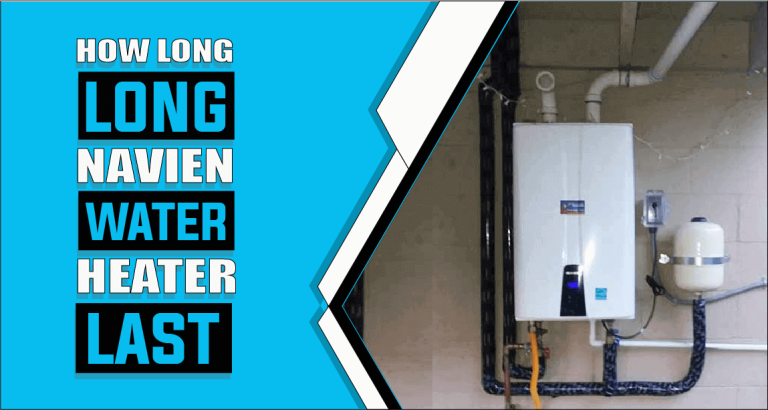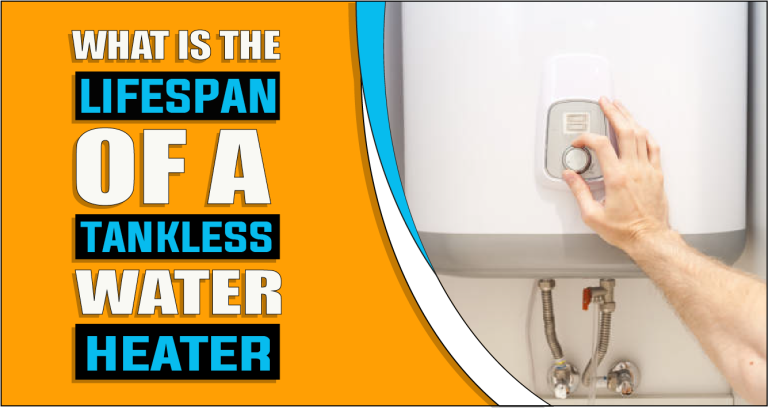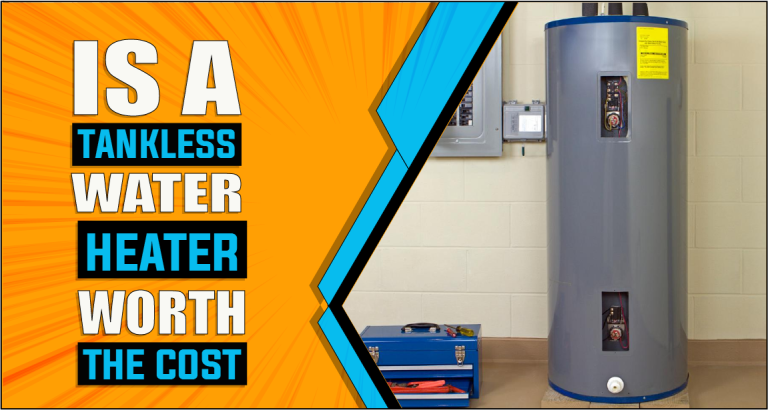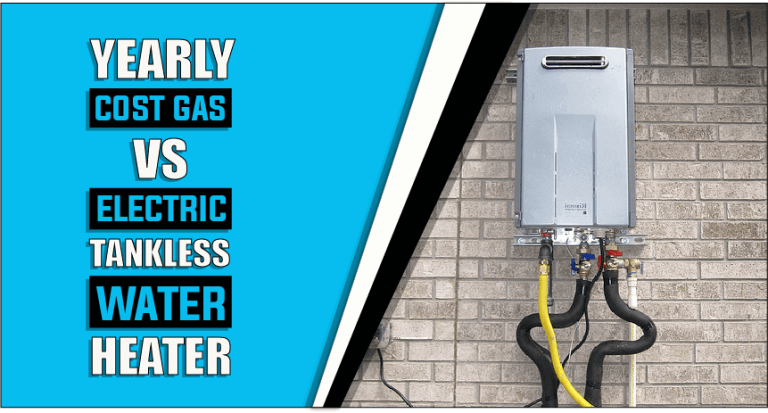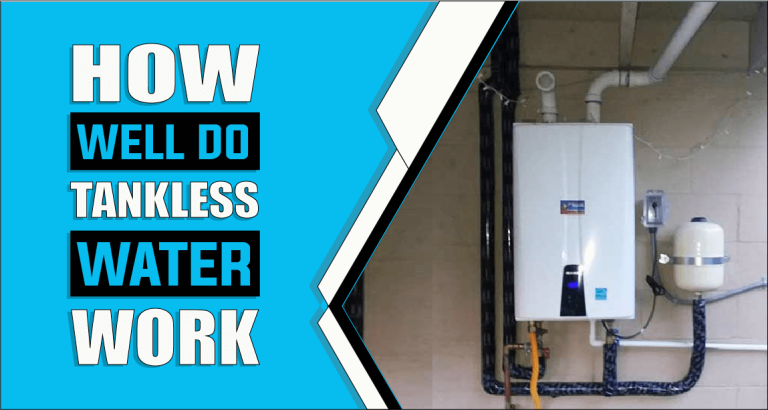How Much Does A Gas Water Heater Cost Per Month | Calculating the Monthly Expense
Gas water heaters are popular among homeowners due to their efficiency and cost-effectiveness. However, one of the primary concerns when considering a gas water heater is the cost of operation. Many homeowners want to know how much they can expect to spend per month on their gas water heater. The monthly cost of operating a gas water heater can vary depending on several factors. These factors include the size of the heater, the efficiency rating, the local gas rates, and the average hot water usage in a household. The local gas rates also significantly determine the monthly cost of operating a gas water heater. Different regions have different gas prices, which directly impacts the overall expenses. Do you want to know more about how much a gas water heater costs per month? Let’s dig in!
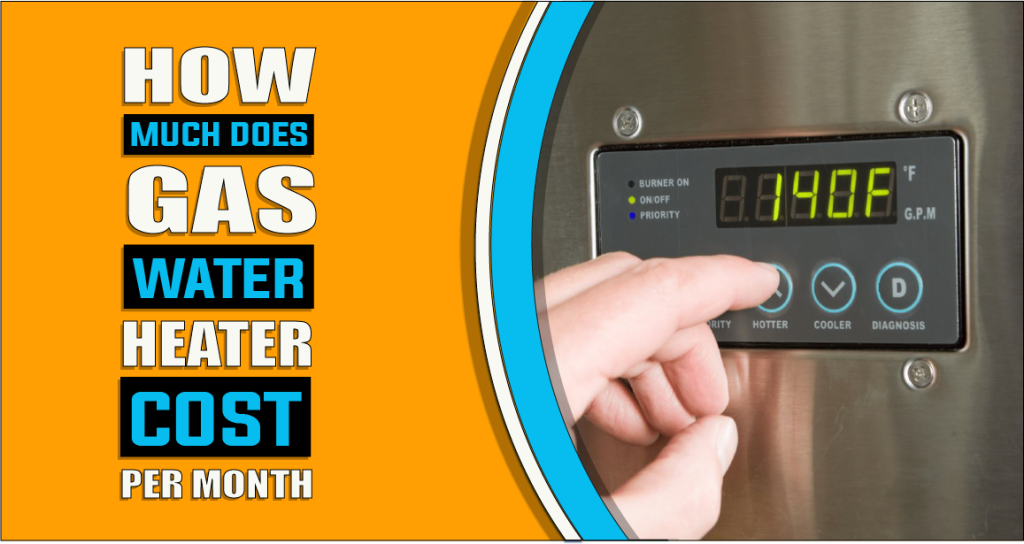
How Gas Water Heaters Work
Gas water heaters are marvels of modern engineering that provide a continuous hot water supply for your daily needs. Understanding their inner workings can help you appreciate their efficiency and identify potential areas for savings. Let’s explore how these essential household appliances operate.
1: Basic Functionality –
A large tank, typically made of steel, is at the heart of a gas water heater that stores and heats water. Here’s a step-by-step breakdown of the process:
- Cold Water Inlet: When you turn on a hot water tap, cold water from your plumbing system enters the water heater through a pipe.
- Heat Source: Inside the water heater, there’s a gas burner (often powered by natural gas or propane) or an electric heating element. In the case of gas water heaters, the gas burner ignites to heat the water.
- Heat Transfer: The burner heats a component called a heat exchanger, which, in turn, warms the water in the tank. In electric water heaters, heating elements directly heat the water.
- Hot Water Outlet: The now-hot water rises to the top of the tank and is ready for use. When you open a hot water tap, the pressure differential causes the hot water to flow into your plumbing system.
- Thermostat Control: Gas water heaters have a thermostat that maintains the desired water temperature. It controls when the burner ignites to keep hot water within a specified range. Electric water heaters use a similar thermostat system with heating elements.
2: Types of Gas Water Heaters –
There are two main types of gas water heaters: tankless ones and heaters with a tank style.
- Tankless Gas Water Heaters: On-demand water heaters heat water as it flows through without needing a storage tank. This means they only heat water when required, making them highly energy-efficient.
- Tank-Style Gas Water Heaters: These are the more traditional models with a large storage tank. They continuously heat water to keep it ready for use, which may result in some standby heat loss, but they can supply hot water at multiple fixtures simultaneously.
Understanding the core functionality of gas water heaters is essential as it sets the stage for comprehending how these appliances impact your monthly costs.
Now, let’s explore the factors that influence the cost of operating these systems and provide practical advice to optimize their efficiency.
Factors Affecting Gas Water Heater Costs
Gas water heaters provide comfort and convenience, but the monthly cost of operating these devices can vary significantly. Several factors influence these costs, and understanding them is crucial for efficient and cost-effective use. Let’s delve into the key determinants:
- Gas Prices:
The cost of natural gas or propane, depending on your location and energy source, significantly determines your gas water heater’s monthly expenses. Gas prices fluctuate due to supply and demand, geopolitical factors, and market conditions. Keeping an eye on local gas prices and potential changes can help you anticipate variations in your water heating costs.
- Energy Efficiency:
Gas water heaters have an Energy Factor (EF) rating that indicates their efficiency in converting gas into hot water. A higher EF means greater efficiency and lower operating costs. It’s essential to check the EF when purchasing a new gas water heater, as investing in a more efficient model can lead to long-term savings.
- Usage Habits:
Your daily habits significantly impact your gas water heater costs. More extended showers, frequent laundry cycles, or leaving hot water running unnecessarily can increase your consumption and, subsequently, your monthly expenses. Being mindful of your hot water usage can help lower costs.
- Climate:
The climate in your region also plays a role in gas water heater costs. In colder climates, water heaters may need to work harder to maintain desired water temperatures, increasing energy consumption. Additionally, the temperature of the incoming cold water affects how much heating is required to reach the desired hot water temperature.
Calculating Monthly Gas Water Heater Costs
Knowing how to calculate the monthly operating costs of your gas water heater is essential for managing your household expenses and making informed decisions about your energy consumption. Below, we’ll walk you through the steps to determine the costs accurately:
- Gas Consumption Rate:
Check your gas water heater’s specifications or nameplate for the BTU (British Thermal Unit) input rating. This figure represents the heater’s capacity to consume gas per hour, usually measured in thousands of BTUs.
Natural gas usage is commonly measured in therms or cubic feet. To convert BTUs to terms, divide the BTU rating by 100,000. To convert to cubic feet, divide by 1,000.
- Cost of Natural Gas:
Monitor gas prices from your local utility provider or online resources. Gas prices can vary, so ensure you have up-to-date information.
Divide the cost of natural gas per unit (therm or cubic foot) by the BTU input rating. This will cost you one hour to run your gas water heater.
- Energy Efficiency Rating:
Find the Energy Factor (EF): Look up the Energy Factor of your gas water heater in the product specifications or on the appliance’s label. The EF is typically expressed as a decimal (e.g., 0.67).
Calculate the Efficiency Factor: Subtract the EF from 1 (1 – EF) to find the heater’s efficiency factor. This tells you what proportion of the gas consumed is converted into hot water.
- Sample Monthly Cost Calculation:
Let’s put it all together in a sample calculation:
- Assume you have a gas water heater with a BTU input rating of 40,000 and an EF of 0.67. The current gas price is $1.20 per therm.
- Convert BTU to therms: 40,000 BTU ÷ 100,000 = 0.4 therms.
- Calculate the cost per hour: 0.4 therms × $1.20 = $0.48.
- Determine the heater’s efficiency: 1 – 0.67 (EF) = 0.33, or 33% efficient.
- Calculate the monthly cost: $0.48 per hour × 24 hours (average usage) × 30 days = $345.60 per month.
By following these steps, you can accurately estimate the monthly cost of operating your gas water heater.
Ways to Reduce Gas Water Heater Costs
Gas water heaters are essential for daily comfort but can significantly contribute to energy bills. Fortunately, there are several effective strategies to reduce gas water heater costs without sacrificing hot water quality. Let’s explore these energy-saving measures:
Tip 1. Temperature Adjustment:
Most gas water heaters allow you to adjust the thermostat temperature. Lowering the temperature to around 120°F (49°C) is often sufficient for most household needs. This reduces the energy needed to heat the water, lowering costs.
If your water heater has a vacation mode or low-demand setting, use it when you’re away for an extended period. This will further reduce energy consumption.
Tip 2. Insulation and Maintenance:
Insulating the hot water pipes from your water heater can help retain heat, reducing heat loss as the hot water travels to your faucets and fixtures.
If your water heater is not insulated, consider adding an insulating jacket or blanket. This helps maintain water temperature, reducing the frequency of heating cycles.
Also, annual maintenance is performed, including flushing the tank to remove sediment buildup and checking for leaks. A well-maintained water heater operates more efficiently.
Tip 3. Timed Usage:
Consider scheduling showers and laundry during non-peak hours. This reduces the demand on your water heater when gas prices are higher.
Install a timer on your gas water heater, allowing you to program it to turn off during periods when you don’t need hot water, such as overnight.
Tip 4. Consider a Timer or Smart Thermostat:
You can install a gas water heater timer to schedule the heating cycles to match your usage patterns. For example, you can set it to turn off when everyone is at work or asleep and turn it back on before you typically need hot water.
If your water heater is compatible, a smart thermostat can enable you to remotely control and schedule your water heater’s operation, optimizing its usage for efficiency.
The Importance of Regular Maintenance of Gas Water Heater
Gas water heaters are dependable workhorses in many households, providing a continuous hot water supply. However, they require regular maintenance to ensure efficiency, safety, and longevity.
Here’s how proper maintenance can help control costs and extend the lifespan of a gas water heater:
- Over time, sediment, minerals, and debris can accumulate at the bottom of the water heater tank. This buildup acts as an insulating barrier, making it harder for the burner to transfer heat to the water. Regular maintenance, including flushing the tank, removes this sediment, allowing your water heater to operate more efficiently.
- Neglecting maintenance can lead to a decrease in the overall lifespan of your gas water heater. Corrosion, rust, or the accumulation of sediment can cause damage to the tank and other components. By regularly inspecting and maintaining the heater, you can identify and address issues early, preventing costly repairs or replacements down the road.
- Regular maintenance also ensures the safety of your gas water heater. Gas appliances pose potential risks if not properly maintained.
- A well-maintained product is less likely to experience sudden breakdowns or interruptions in the hot water supply. Consistency in your hot water supply is convenient and avoids the inconvenience of emergency repairs or replacements.
Comparing Gas Water Heaters to Electric Water Heaters
Gas and electric water heaters are two popular options for providing your home with hot water. Each has its own advantages and disadvantages, and choosing the right one for your needs can impact your comfort and utility costs. In this section, we’ll provide a detailed comparison of gas water heaters and electric water heaters with proper headings:
1: Energy Source Differences –
- Gas Water Heaters: Natural Gas or Propane: Gas water heaters primarily use natural gas or propane as their energy source. They rely on combustion to heat the water within the tank.
- Electric Water Heaters: Electric water heaters use electricity to power heating elements within the tank, directly heating the water.
2: Environmental Impact –
- Gas Water Heaters: Burning natural gas or propane emits carbon dioxide (CO2) and other greenhouse gases. The environmental impact depends on the energy source and the heater’s efficiency.
- Electric heaters: Electric water heaters have lower direct emissions than gas heaters. However, emissions can still occur at power plants, depending on the energy source for electricity production.
3: Maintenance and Longevity –
- Gas Water Heaters: Gas water heaters typically require more maintenance due to the combustion process, including periodic burner and gas line inspections. Well-maintained gas water heaters can have a longer lifespan, often exceeding ten years.
- Electric Water Heaters: Electric water heaters are generally less complex and have fewer maintenance requirements. There’s no combustion-related maintenance. Electric water heaters can also have a long lifespan with proper care, typically around 10-15 years.
Conclusion:
So, how much does a gas water heater cost? The answer lies in numerous factors. The cost of operating a gas water heater per month can vary depending on the price of natural gas, the efficiency of the heater, and the usage patterns.
On average, gas water heaters are more cost-effective than electric water heaters due to the typically lower cost of natural gas. However, it’s essential to consider factors such as insulation, temperature settings, and maintenance to optimize energy efficiency and reduce costs further.
Additionally, regional variations in gas prices can impact monthly expenses. To determine the precise cost, it’s recommended to check the local gas rates, calculate the heater’s efficiency, and estimate usage patterns. Regular monitoring and efficient use of gas water heaters can help minimize monthly expenses while ensuring a reliable hot water supply.
Frequently Asked Questions
Switching from a gas to an electric water heater depends on your situation. While electric water heaters may have lower operating costs in some areas, the initial installation cost and the need for adequate electrical capacity should be considered. It’s recommended to consult with a professional to determine the best option for your home.
Regular maintenance is crucial for the efficiency and longevity of your gas water heater. Annual maintenance is generally recommended. This includes flushing the tank to remove sediment buildup, checking for gas leaks or other issues, and inspecting safety features. Consult your water heater’s manual or have a professional provide specific maintenance guidelines.
You can install a timer on your gas water heater. Timers allow you to schedule when the water heater operates, helping you avoid heating water during periods of low demand, such as overnight or when you’re not home. This can result in energy savings and lower monthly costs.
Gas consumption in your water heater is primarily influenced by the burner’s efficiency and the demand for hot water. While you can adjust the thermostat to reduce the water heater’s temperature, it’s essential to maintain a safe and comfortable level. The most effective way to save money is by optimizing efficiency through proper insulation, maintenance, and efficient use of hot water.
While some maintenance tasks, like flushing the tank or inspecting for leaks, can be performed by homeowners, it’s generally advisable to hire a professional for more extensive maintenance and safety-related tasks. Professionals are trained to handle gas lines and combustion components and ensure the safe operation of your water heater. Safety should be a top priority, so consult with a qualified technician when in doubt.
Ella John is passionate about helping her readers make the best choice when purchasing a heater. She understands that selecting a heater can be difficult and strives to provide information to help make the decision easier. Ella’s website, Heatersinfo.com, provides valuable insight into heating trends and types of heaters and tips on how to care for them. She also advises selecting the right heater based on individual needs and preferences. Her expertise in electronics makes her an excellent source of knowledge, and she is confident that anyone who visits her website will find the perfect heater information for their needs. Ella’s dedication to helping others make educated decisions about buying the right heater is unparalleled, and she hopes to continue offering her expertise for many years. With Ella’s help, finding the perfect heater can be a breeze!

